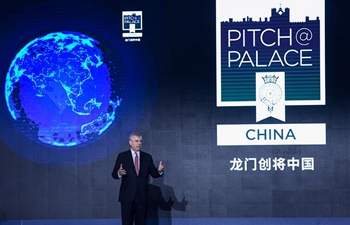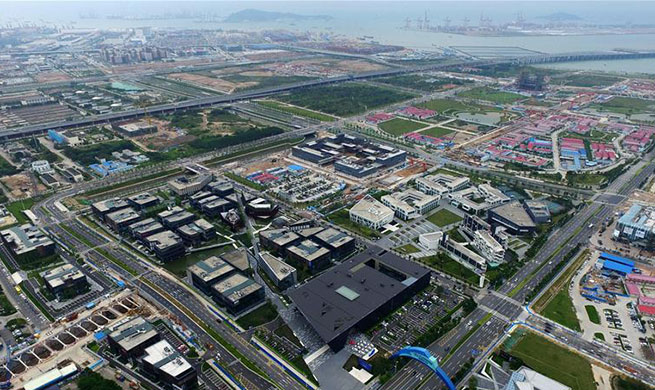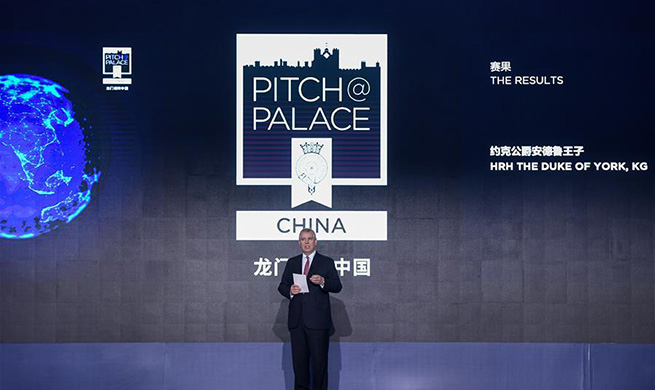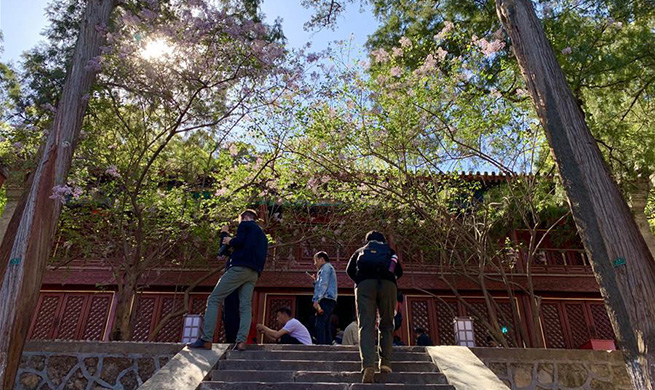by Xinhua writers Xia Lin, Wu Xiaoling, Gao Lu, Zhang Mocheng
SAN FRANCISCO, April 14 (Xinhua) -- Outgrowing the booming cities on the U.S. West Coast, the region's high-tech giant corporations have begun to march eastward to seek more opportunities, dealing with challenges old and new.
Expanding from their host cities of San Francisco, Seattle and San Jose, multinationals of global success including Amazon, Apple, Google and others are widely expected to help improve America's high-tech layout as well as offset the urban-rural divide brought by the digitalization of the U.S. economy.
It is a process of inevitability, but comes at a cost, said experts.
BALANCE AND OFFSET
In 2018, more than 44 percent of all digital-service jobs in the United States were located in just 10 metro areas, including Seattle, San Francisco and San Jose, as well as New York, Washington, D.C., Los Angeles and Boston, The New York Times (NYT) reported in a recent article, quoting from a research project by Mark Muro, senior fellow at the Brooklyn Institute.
The industry's geographical concentration or imbalance has made the high-tech juggernauts' eastward expansion a choice of must, and behind the phenomena is a return to its origin.
"Just as tech companies have moved to the center of the U.S. and global economy, so have the large West Coast-based tech companies expanded their offices beyond California and Seattle. In some respects, this is going back to where tech started," said Margaret O'Mara, associate professor of History at the University of Washington (UW), Seattle, in an email to Xinhua.
In mid-20th century, the electronics industry was centered on the East Coast, with market leaders like the International Business Machines Corporation (IBM) having headquarters in New York State, and Boston being the original academic center of computer research and companies like minicomputer giant Digital and word processor maker Wang, she added.
By entering the industry's historical bastion, the corporations are making a whole new bet.
"They're spreading the culture of Silicon Valley to other parts of the United States," said Del Christensen, chief of global business development for the Bay Area Council (BAC), which is delegated by the West Coast's digital enterprises with their public affairs and strategy management.
"You start to become part of that culture and that economic system, and I think that's good for California-based companies ultimately that they have a closer relationship with the people that are working (for example) in Washington, D.C.," he added.
O'Mara stressed through a historical perspective that the expansion helps balance the country's economy and opens up opportunities for all the concerned sides.
"There has been very uneven growth of the U.S. economy generally, and tech in particular, with most of GDP coming from very large coastal metropolitan areas on the east and west coasts, with the smaller cities and the heartland being left behind," she said.
The current eastward expansion may address geographical dynamics and help remedy the U.S. tech imbalance, added O'Mara, author of Cities of Knowledge: Cold War Science and Search for the Next Silicon Valley.
WEATHER CHANGES
However, some experts said, the fierce growth of big company itself, as demonstrated in Amazon's empowerment in Seattle, Washington State, has created problems for the city.
Despite the great boost it has provided in employment and other sectors, "Amazon also draws much of the blame for pushing up house costs and homelessness, aggravating traffic and even diluting Seattle's identity as a quirky, laid-back city," The Washington Post reported this week.
It has earned a reputation as "a self-centered behemoth contributing too little to address the disruption it helped create," added the newspaper.
Like what Amazon has done to Seattle, the eastward expansion's most palpable downsides might be gentrification, heavier traffic, lower affordability and fierce competition for jobs.
Right recently, Amazon found its entrance to the East Coast bumpy and vexing. It had just scuttled a second headquarters (HQ2) agreement with New York due to strong opposition arising from the locality.
Some residents, defying the potential huge employment and billions of tax revenues the company might bring in the long run, thought that its HQ2 blueprint would elevate house prices and garner too much tax breaks from the local people and government.
The Seattle-based behemoth originally planned to base at least 25,000 employees in New York City, for as much as 3 billion U.S. dollars worth of state and city incentives in return.
"The reversal mirrored the company's interaction with officials in other states," the NYT reported, quoting UW's O'Mara as saying that "Amazon doesn't like any friction."
"You go into a region that doesn't have a very good economy, and you change that economy dramatically and make the cost of living go up in gentrification," explained Christensen. Amazon targeted the Long Island City, a part of NYC which is thought as less developed within the whole city.
Experts widely agreed that there will be a long way to go for the eastward expansion, foreseeable with progresses as well as setbacks, when the east and central parts' sophistication in politics and economies is factored in.
"Now tech companies have to cope with quite different political conditions in cities, and will need to get smarter about the political and historical dynamics as well as understand that some compromises need to be made," O'Mara said.
WORTHY GAME
So far, there has still been a voice in New York State calling back Amazon, which has remained silent and was reportedly mulling other options in nearby states.
"That's where all the players are," said James DeNicco, director of the Principles of Economics Program at Rice University, weighing the game from a collateral angle while reflective of the sophistication it has involved.
"There's definitely difficulties and challenges, for the local government to try to figure out how to deal with the situation, and for the people who are on the losing end of this," he added.
Out of years of strong growth as they attained one goal after another, these big companies dealt with problems and difficulties incessantly but not without wounds. In retrospective, nothing seems insurmountable in their eternal quest of development and augmentation.
As to the past half year, tech giants like Amazon, Apple and Google have increasingly adopted the same strategy of hiring more bright minds to grow larger and outrun one another in their long-term competition.
Further back over the past two years, Amazon's work force has doubled to 613,300 with 16 tech hubs in the United States; Google's umbrella company, Alphabet, has increased its head count by 35 percent to 94,300; and Apple has grown nearly 14 percent to 132,000, according to the NYT.
Survival of the fittest is the rule of the game. Experts thought that high-tech industry is becoming a normal industry, and its expansion to the east is meant to be long and excruciating, but well worth it.
"Firms are out there to maximize profits. They're doing the right thing," said DeNicco.












